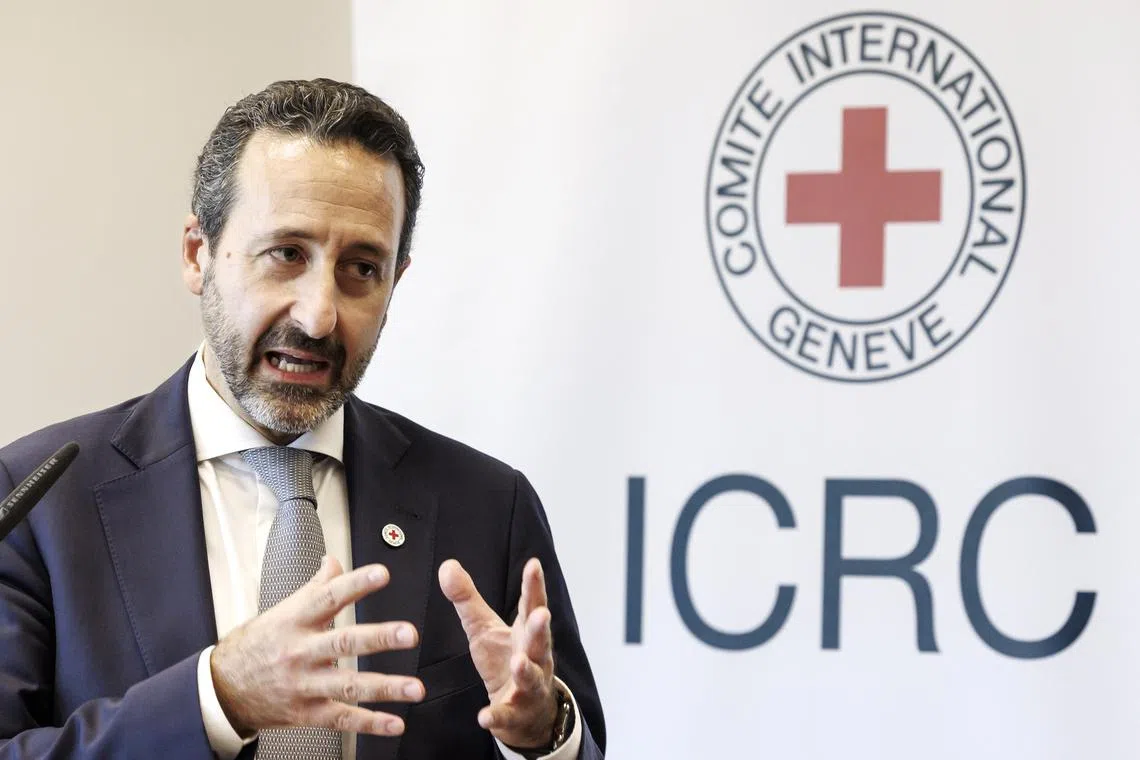Red Cross cuts 2024 budget by 13%, to lay off 270 workers as donations fall
Sign up now: Get ST's newsletters delivered to your inbox

ICRC director-general Robert Mardini said the United States is the organisation’s biggest donor and had cut back its 2023 contributions.
PHOTO: EPA-EFE
Follow topic:
GENEVA – The International Committee of the Red Cross (ICRC) will cut its budget in 2024 by about 13 per cent, its director-general said on Monday, as major donors, including the United States, have reduced funding.
Surging humanitarian needs amid a deepening set of crises around the world, including wars in Ukraine and Sudan, have strained aid budgets, forcing governments to rethink decisions about who to help and how.
“This reduced ICRC budget forecast, which is the consequence of shrinking aid budgets globally, is taking place at a time where global humanitarian needs have never been higher,” Mr Robert Mardini told journalists, saying he was concerned about the impact of the cuts.
“This trend comes at a significant human cost,” he added.
The humanitarian body is present in more than 90 countries, and its activities range from providing basic humanitarian aid to visiting prisoners of war.
The 2024 budget would be 2.1 billion Swiss francs (S$3.2 billion), resulting in 270 further job cuts in its Geneva headquarters, he said.
The ICRC’s website says it is funded by voluntary contributions from states party to the Geneva Conventions, Red Cross and Red Crescent Societies, supranational organisations such as the European Commission, and public and private donors.
At the end of March, its governing board approved a plan to reduce 430 million francs in global costs over 2023 and early 2024, having revised its overall budget down to 2.4 billion francs.
Asked about US funding, Mr Mardini said the United States is the organisation’s biggest donor and had cut back its 2023 contributions versus the previous year, without giving details of the amounts.
“We need to rethink the humanitarian system,” he said. “The whole system relies on a handful of countries and donors, and I think this is by design a big problem and a big risk.” REUTERS

